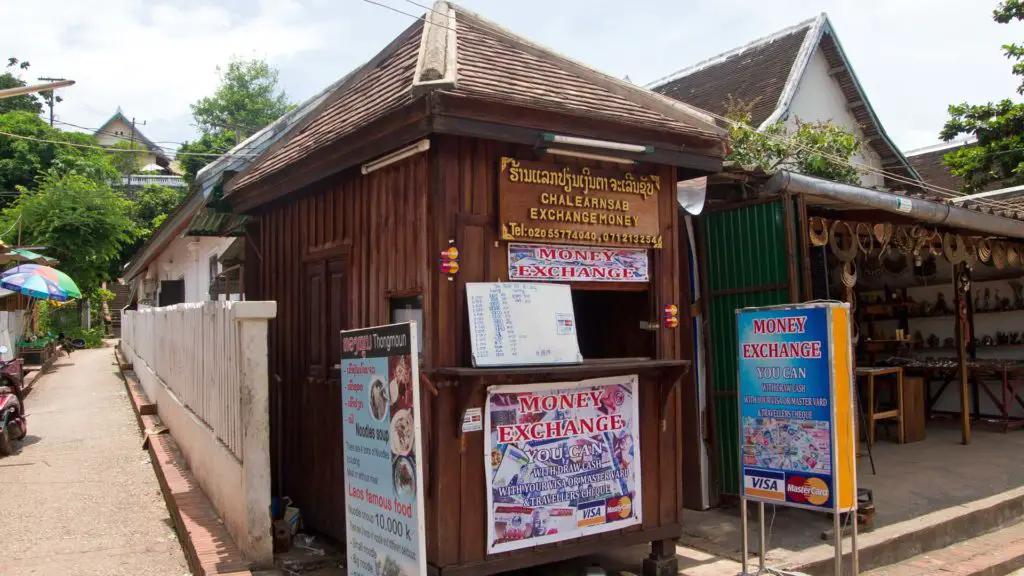
Experiencing different cultures, customs, and languages can make a traveler vulnerable in an unfamiliar country. As a result, he is often the target of individuals seeking to take advantage of his inexperience. Here are some scams you might want to know before traveling to Laos.
Table of Contents
Bus ticket scams
The cheap tickets that bus drivers may offer are simply too good to be true. It is common for cheap bus tickets to be scams. The only catch is that your bus will conveniently break down or stall until ferry rides or borders are closed.
Upon arrival, the driver will direct you to a guesthouse where you will spend the night and spend more time and money on lodging. You should not trust ticket upgrades for VIP tickets as well. Generally, you will still be riding the regular bus because the VIP bus conveniently broke down. There will be no refund for the difference.
Laundry service scams
You may end up missing some of your clothes if you leave your clothes on the laundry mat. It is important to note that clothing, particularly foreign brands, is valuable and is capable of selling for a good price. Ensure that you check and count your laundry before leaving it on the mat and after receiving it back from the mat. Better off, trying to see if they have self-service laundry mats.

Easy money scams
In Laos as well as in other countries, these money schemes are prevalent. In general, it is better to avoid friendly strangers who discuss investments, exports, gemstones, and cards. All of these claims are false; after all, if they were true, then the con artists would also be extremely wealthy.
Tourist office scams
Beware of offices with signs stating that they provide tourist information. This type of establishment is usually not legitimate, and they simply act as middlemen for hotels and restaurants in order to increase their profitability. The key to a specific hotel or restaurant is not their contacts, but their contacts.
They provide false information regarding the location. Furthermore, some taxis have these contacts and may offer you higher-priced venues through their contacts in order to earn commissions.
Taxi scams
It is common for these to occur at transportation stations and border crossing points. It is always advisable to negotiate a fare before taking a taxi. In many cases, friendly smiles conceal a few hidden traps and are used to gain more money from you by tricking you by surprise. Additionally, taxi drivers can take you around the block in order to obtain more money from you.
Broke student scams
It is not uncommon for con artists to pose as broke college students asking for money for their education. Do not believe those who pretend to be art students and attempt to sell you artwork; these are imitations and rip-offs.
Roadside salesmen
The streets of any unsuspecting Laotian town are crowded with sellers. You should be aware of crowds and sellers who are trying to attract your attention, as they are likely to distract you and allow others to pickpocket you.
You can fend them off with a firm no and a shake of the head. They will try to follow you and talk to you even while you are seated, so be firm and stern when you say no.
Money exchanges
Make sure that you exchange your currency at a legal currency exchange establishment. Don’t accept torn, burned, or damaged money. You may have difficulty using or spending them. It is recommended that you exchange your currencies away from border crossings as the rates are inferior. Count your money and double-check calculations and rate exchange information.
Overpriced tuk-tuk rides
As a tourist, you may find that tuk-tuk drivers overcharge you for rides, often by claiming that the destination is far away or by taking a longer route in order to get there.
Fake monks
Tourists may be approached by people posing as monks and asking them for money or gifts. The fact that real monks do not solicit donations in this manner is very important to keep in mind.
Fake gem scams
Tourists may be taken by scammers to a gem store where they will be encouraged to purchase gems or jewelry at inflated prices, with the scammer claiming that the gems will increase in value as time passes.
Fake visa runs
There are cases of tourists being taken to the border and being charged exorbitant fees for a visa run, only to find out a week later that their visas are not valid and that they have been scammed.
Phony guides
Unlicensed guides may offer their services to tourists, and then take them to overpriced shops or tourist attractions, pocketing a commission from the business owners.
Overpriced excursions
Tour operators may offer excursions at inflated prices, or take tourists to destinations that are not worth the cost.
To avoid these scams, it is best to book tours and transportation through reputable companies, research prices in advance, and be cautious of offers from people who approach you unsolicited. It is also important to always be aware of your surroundings and to keep your valuables secure.
Here are some tips to help you avoid scams in Laos:
- Research: Before you travel, research common scams in the area and learn how to recognize them. This will help you be more prepared and aware.
- Use reputable transportation: Book tours, transportation, and excursions through reputable companies to ensure that you’re getting a fair price.
- Be aware of your surroundings: Always be aware of your surroundings and keep your valuables secure. Be cautious of people who approach you unsolicited, especially if they are offering something that seems too good to be true.
- Don’t carry large amounts of cash: Try to carry only what you need for the day and keep the rest in a safe place.
- Be cautious of offers from “friendly” locals: Be wary of offers from locals who seem overly friendly, especially if they are offering to take you somewhere or sell you something.
- Check your change: When making purchases, double-check your change to ensure that you have received the correct amount.
- Don’t be afraid to say no: If something feels wrong or you’re uncomfortable with a situation, don’t be afraid to say no and leave. Your safety and well-being are the most important things.
By following these tips, you can reduce your risk of falling victim to scams in Laos and have a more enjoyable and safe travel experience.








